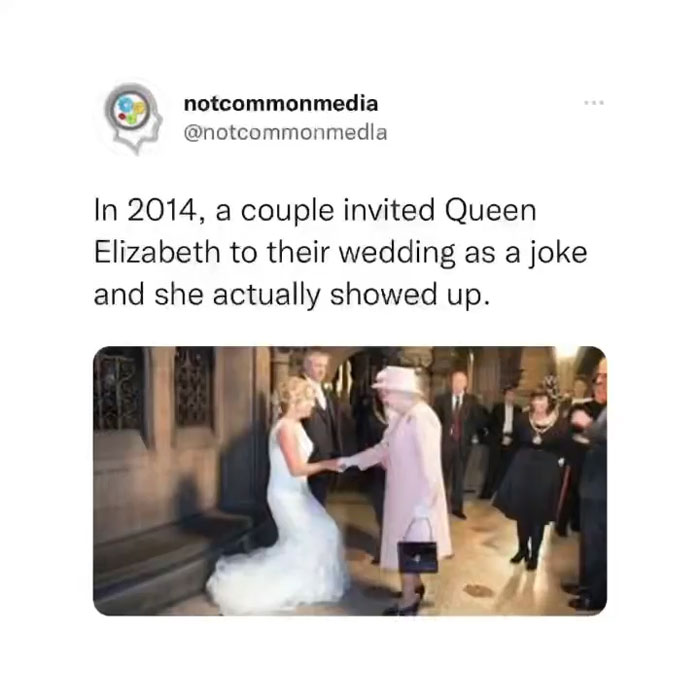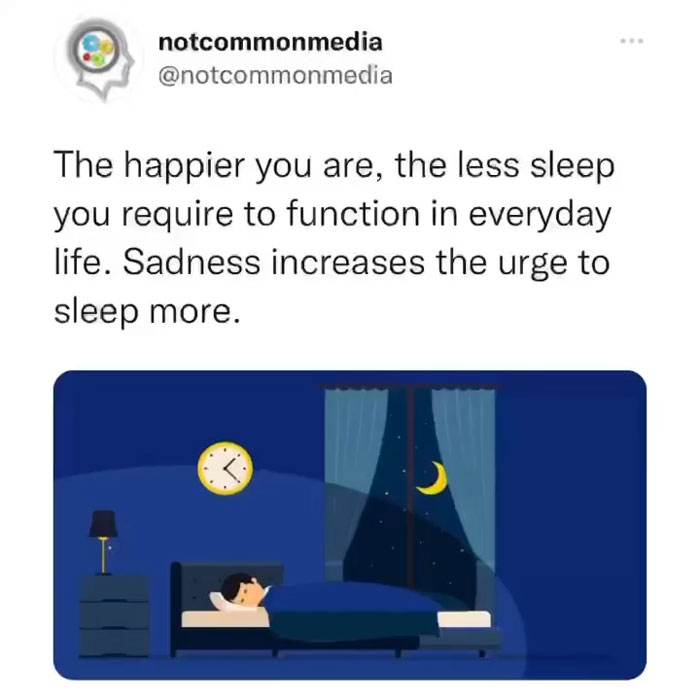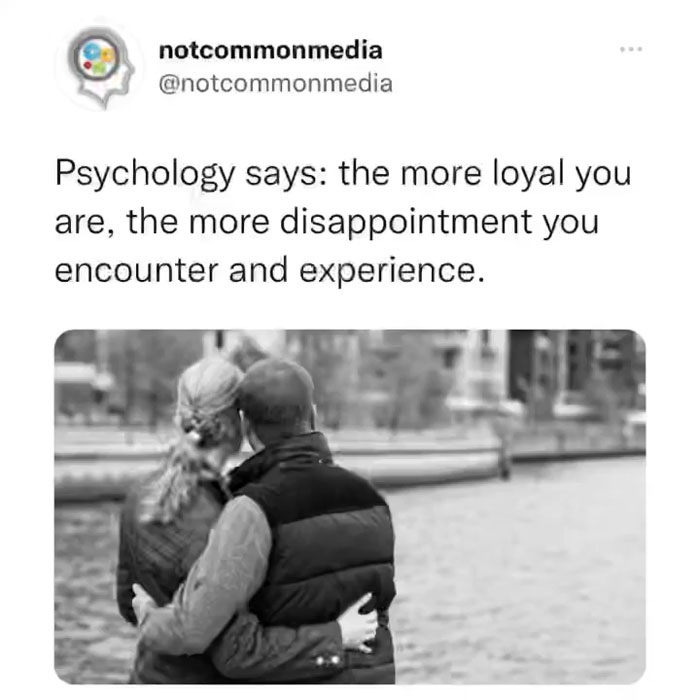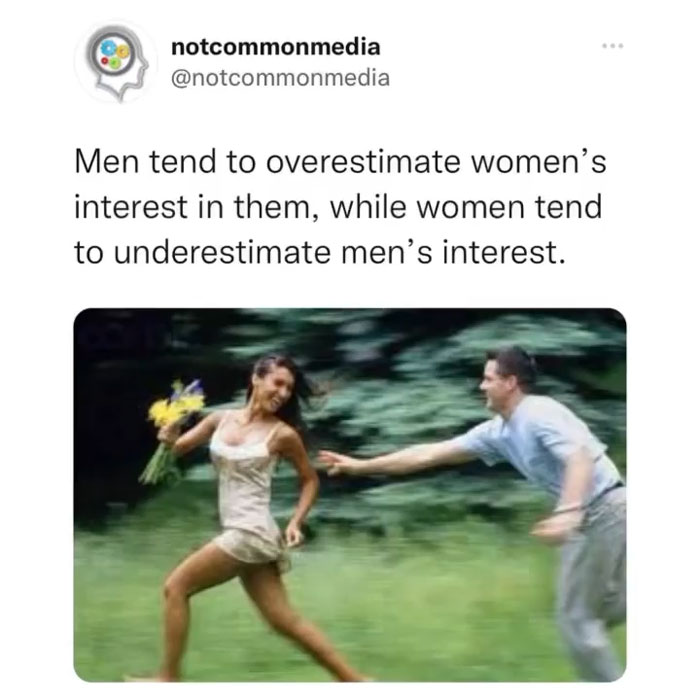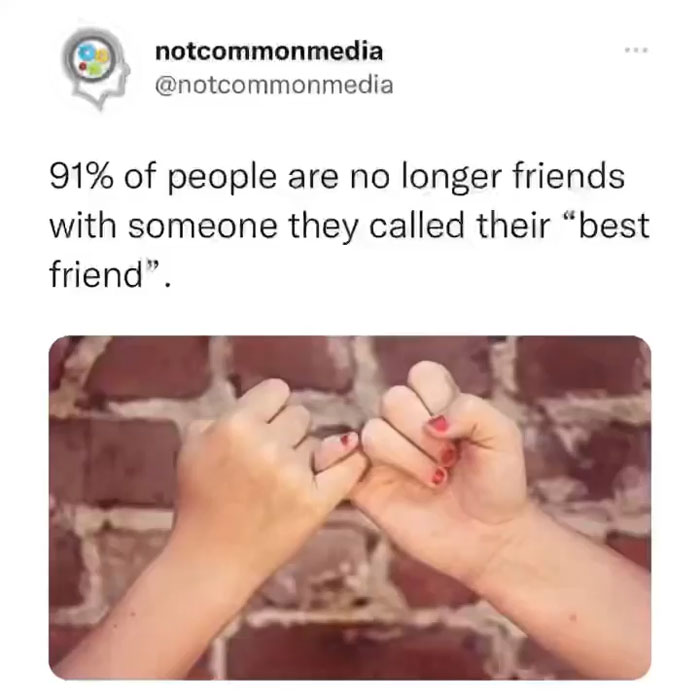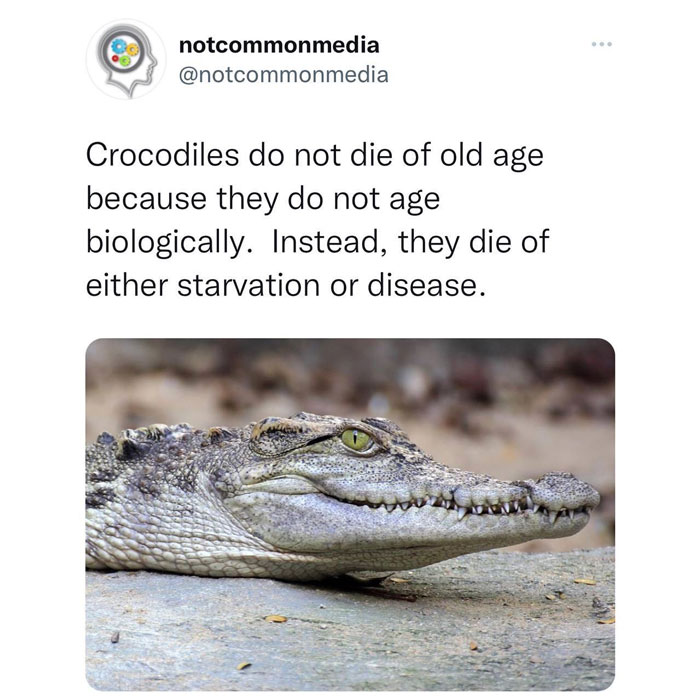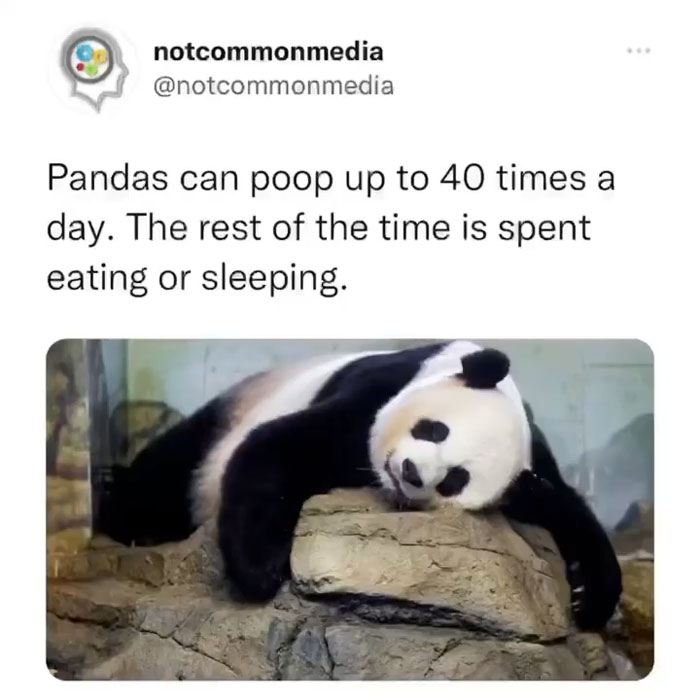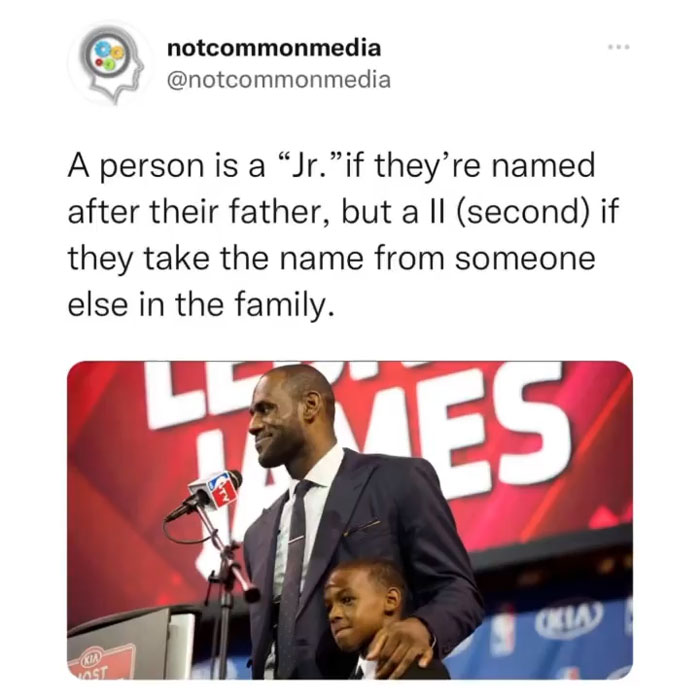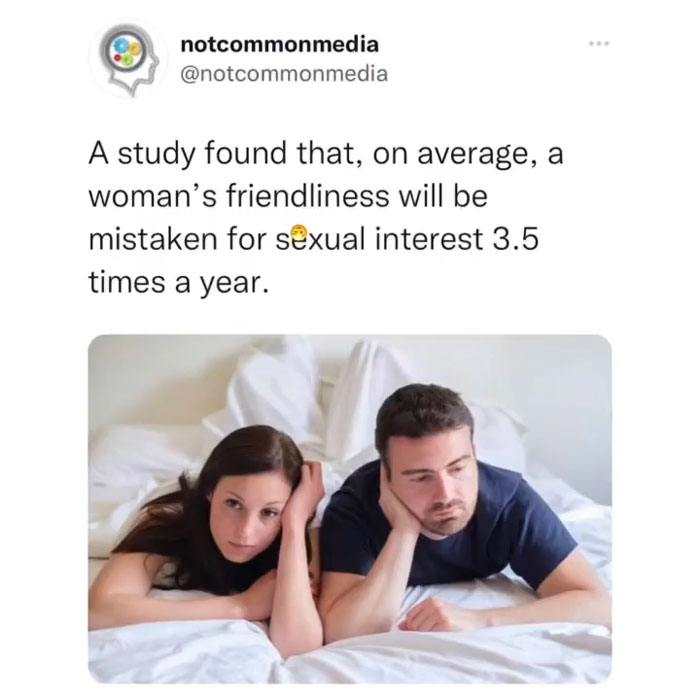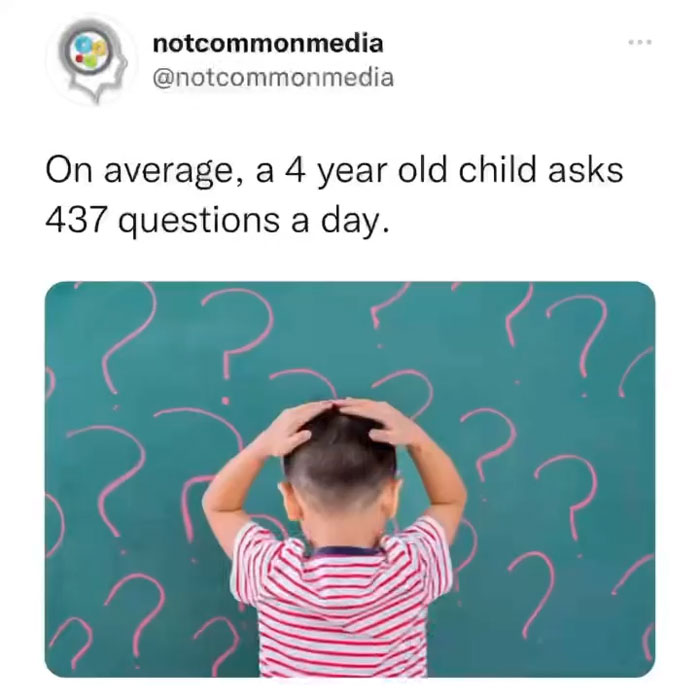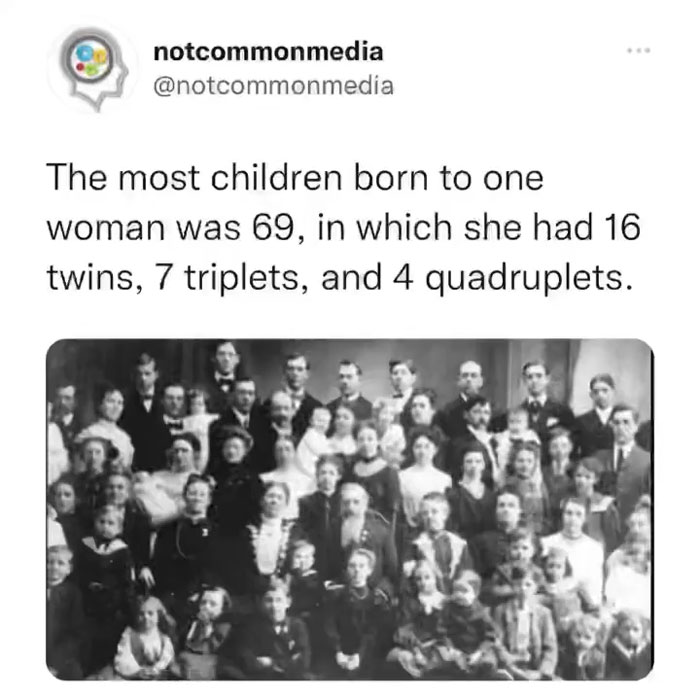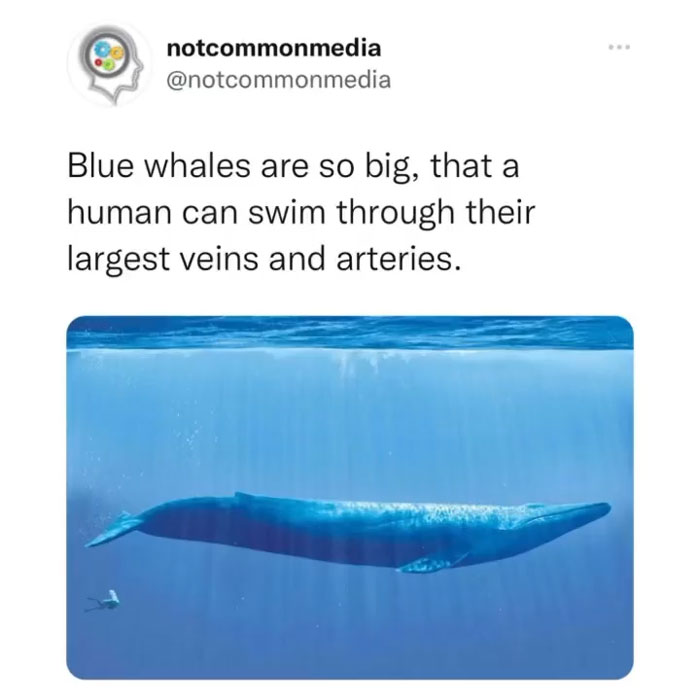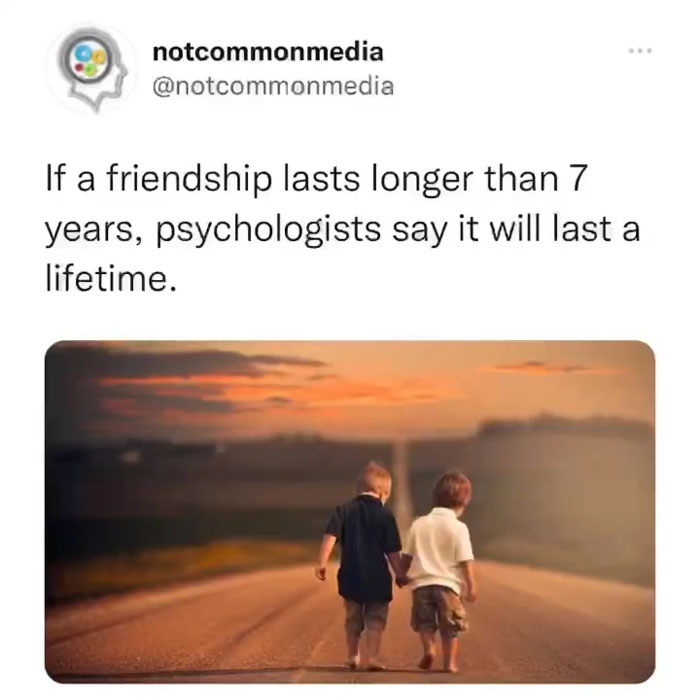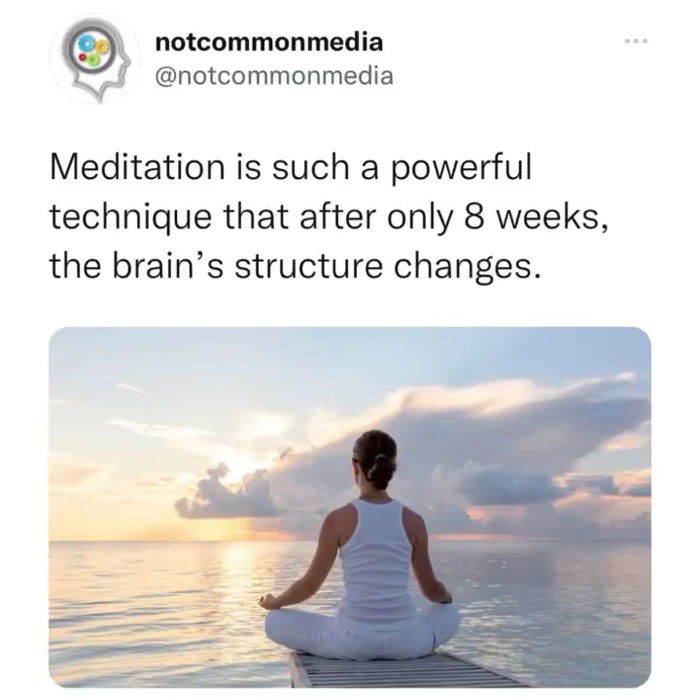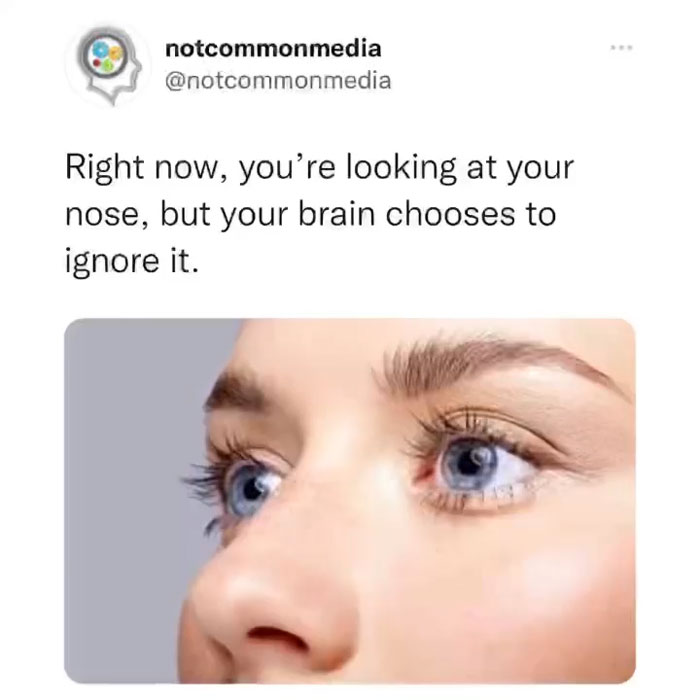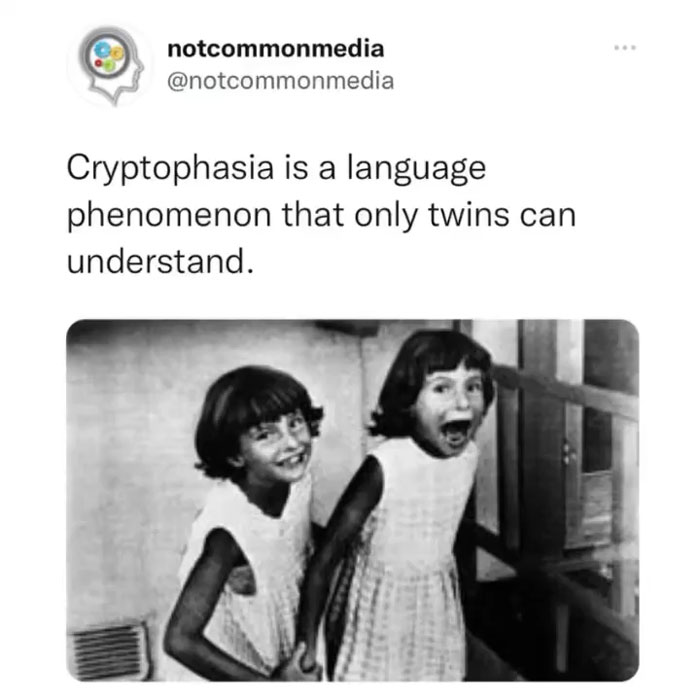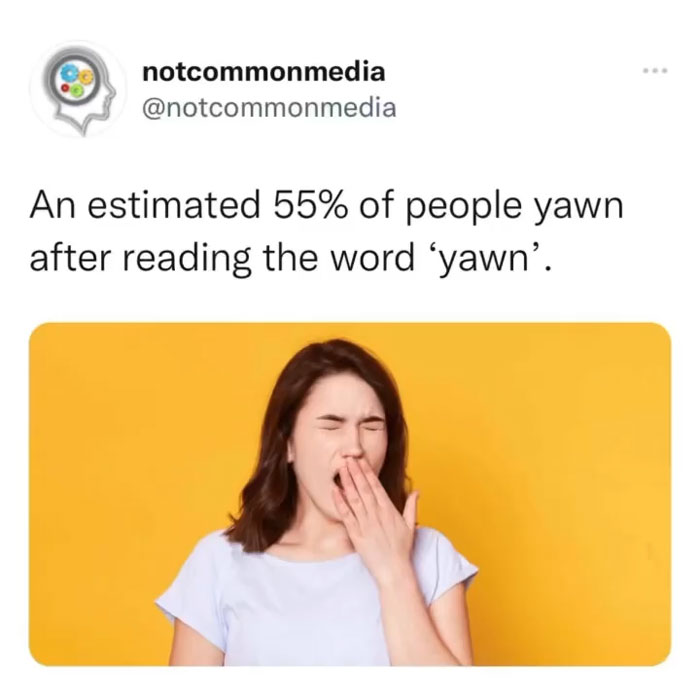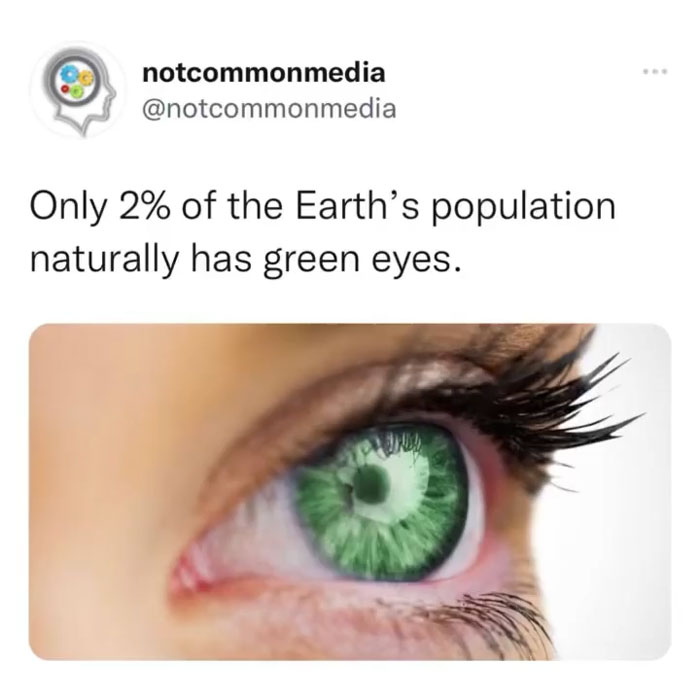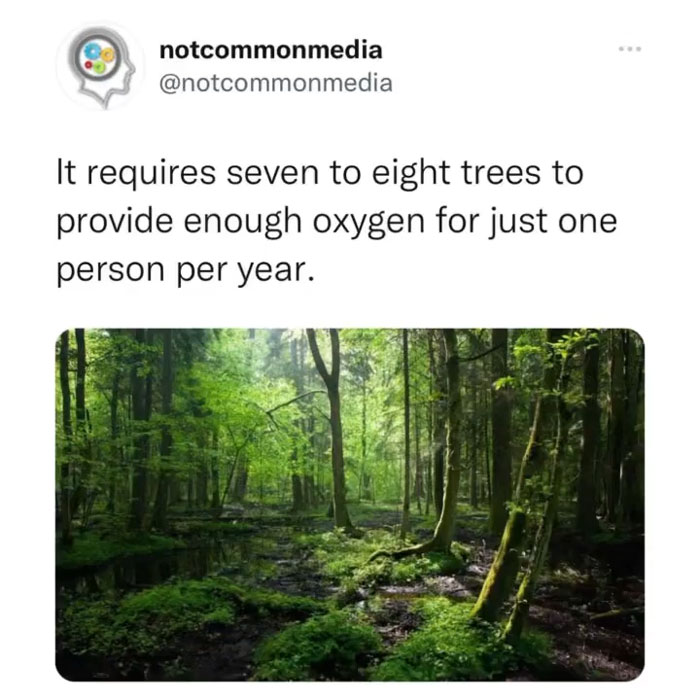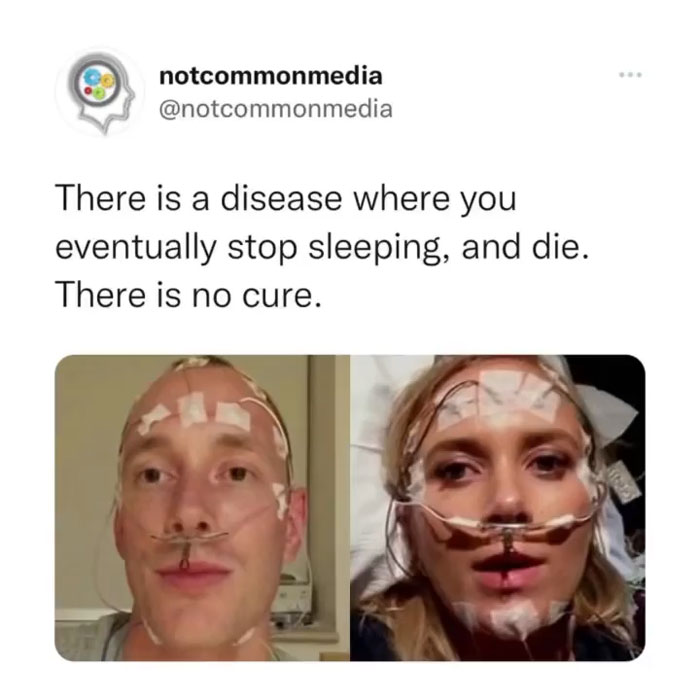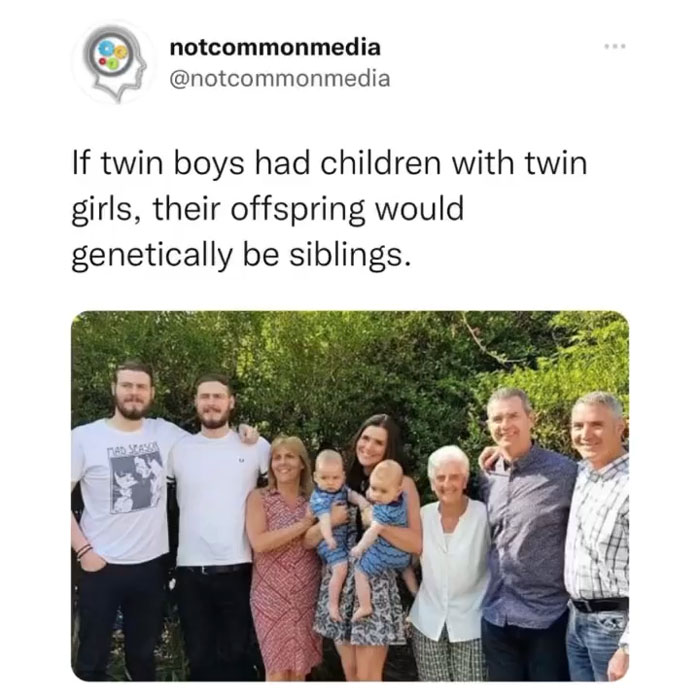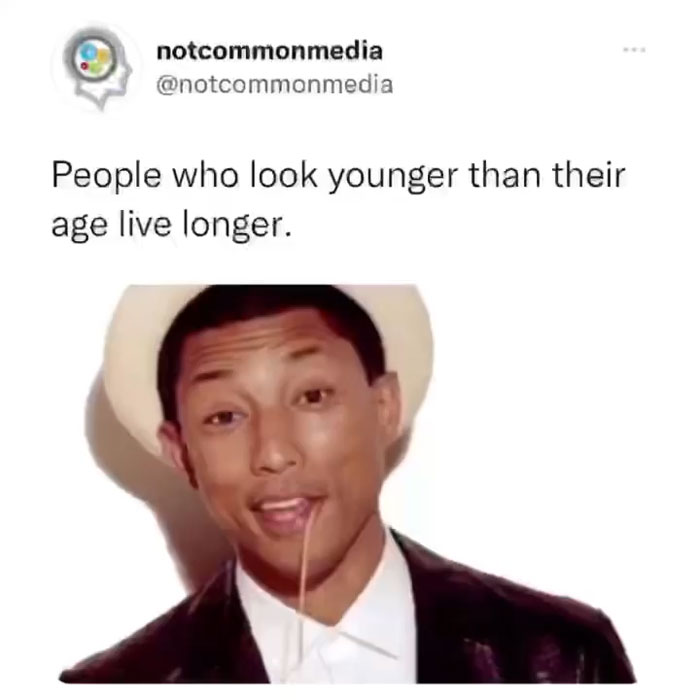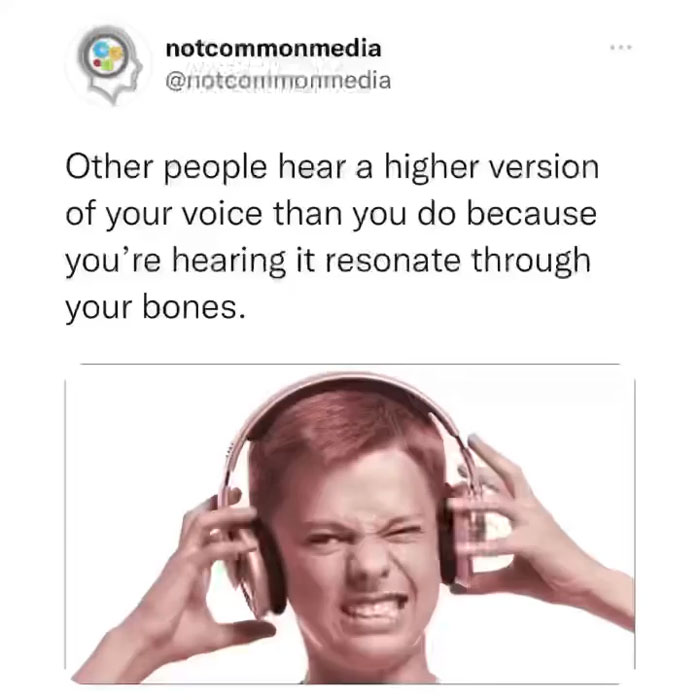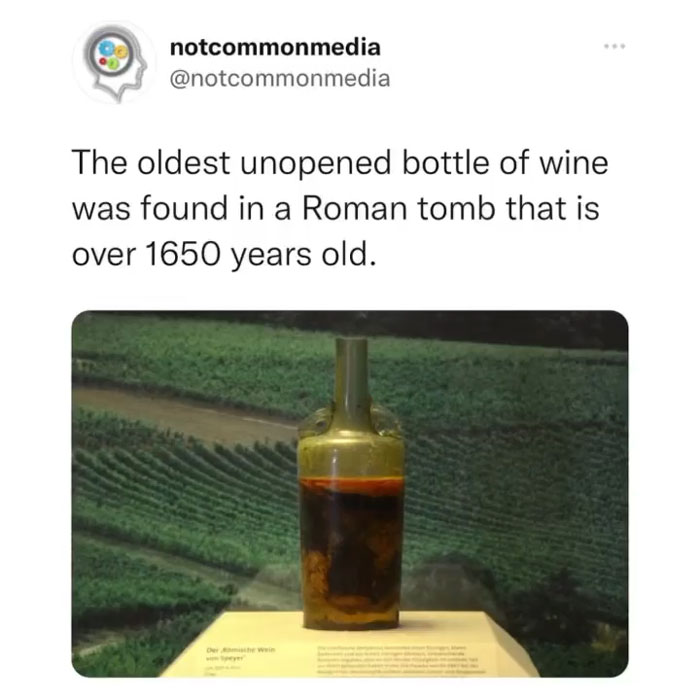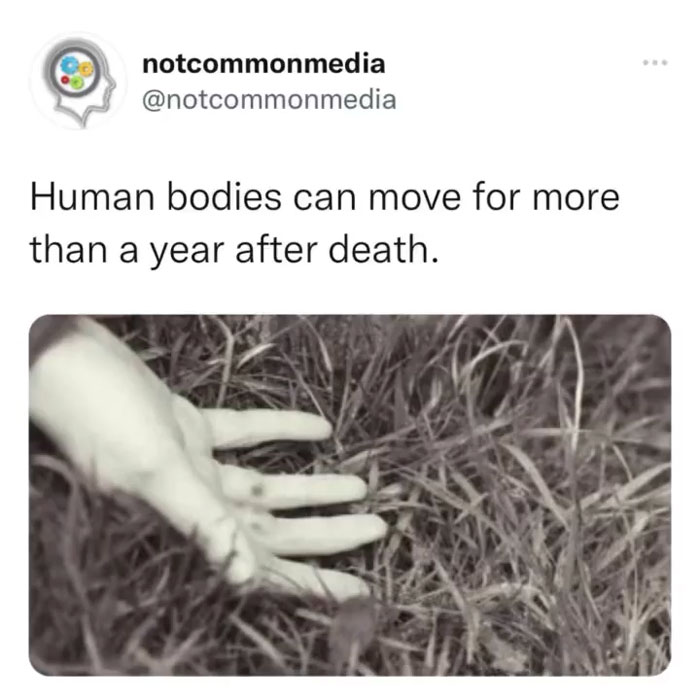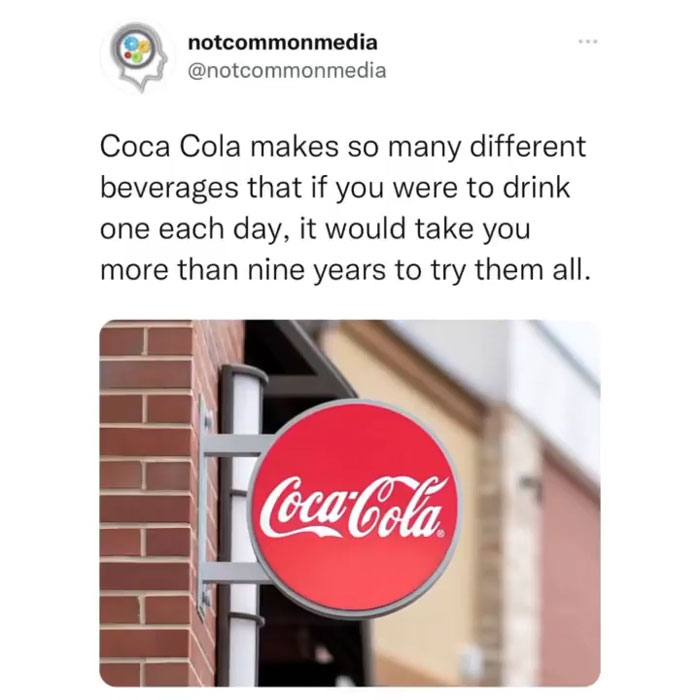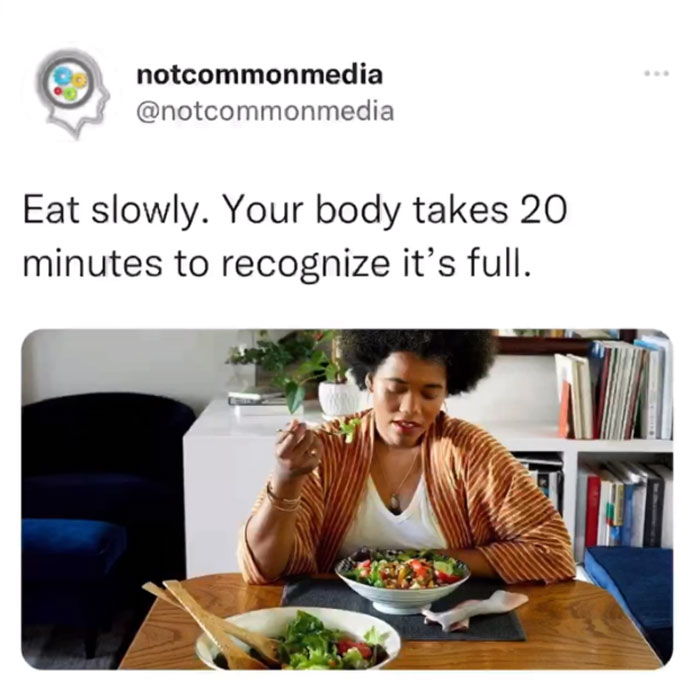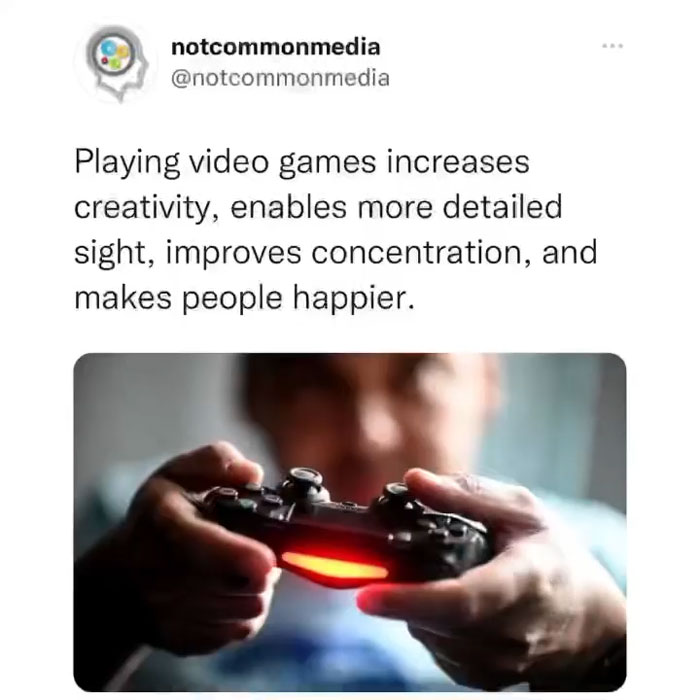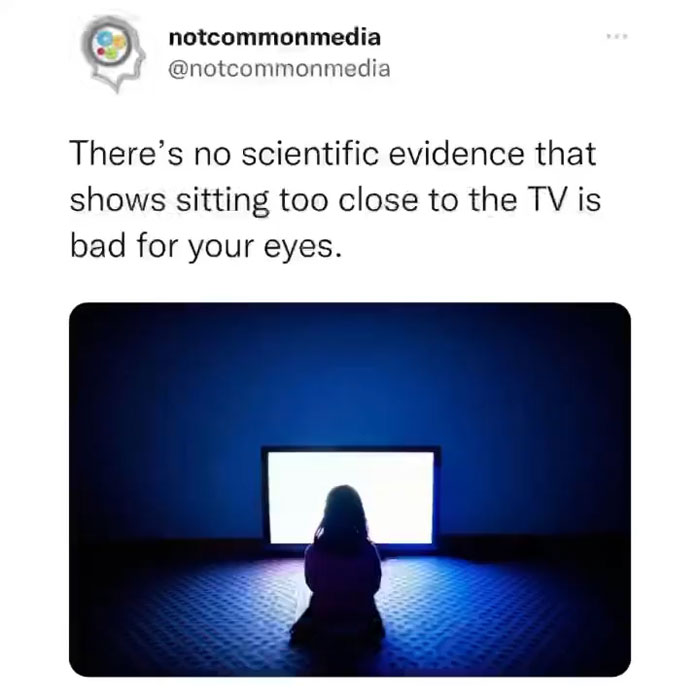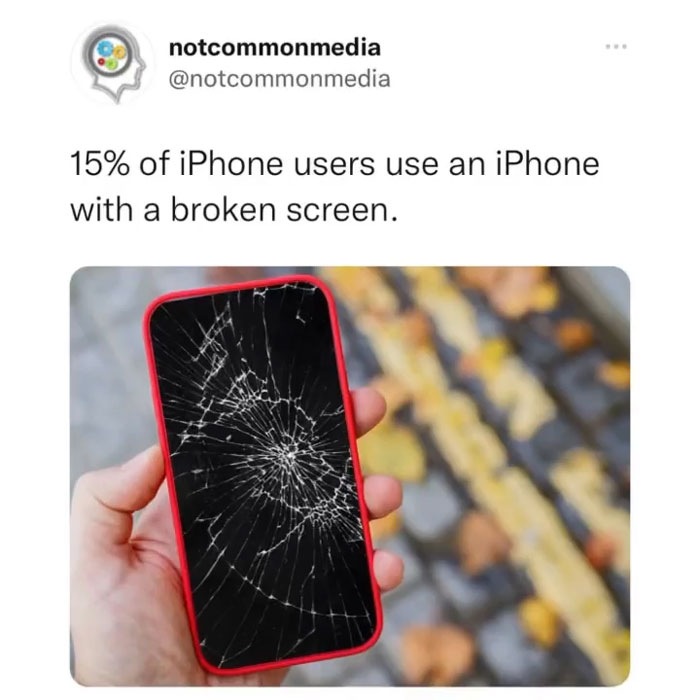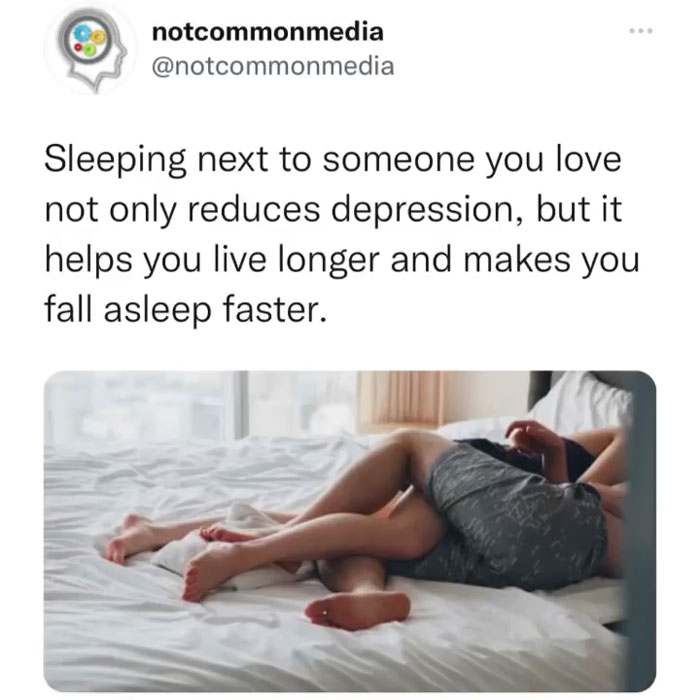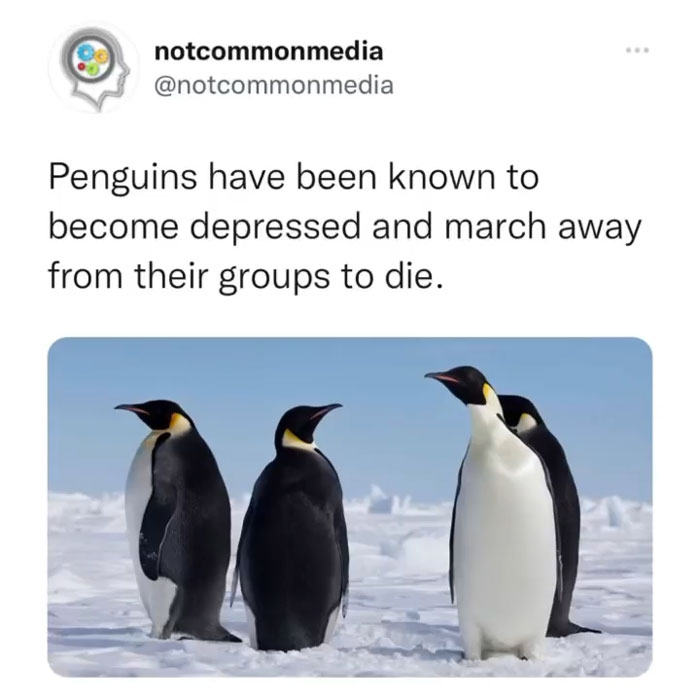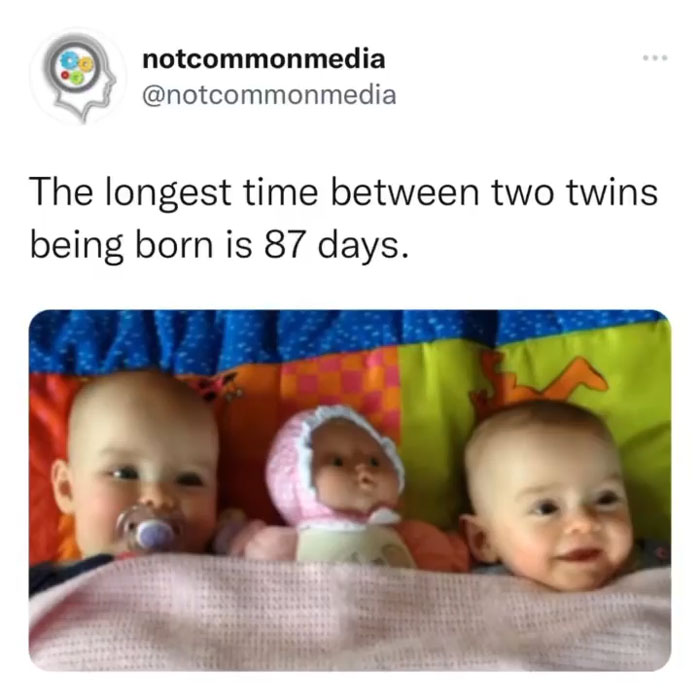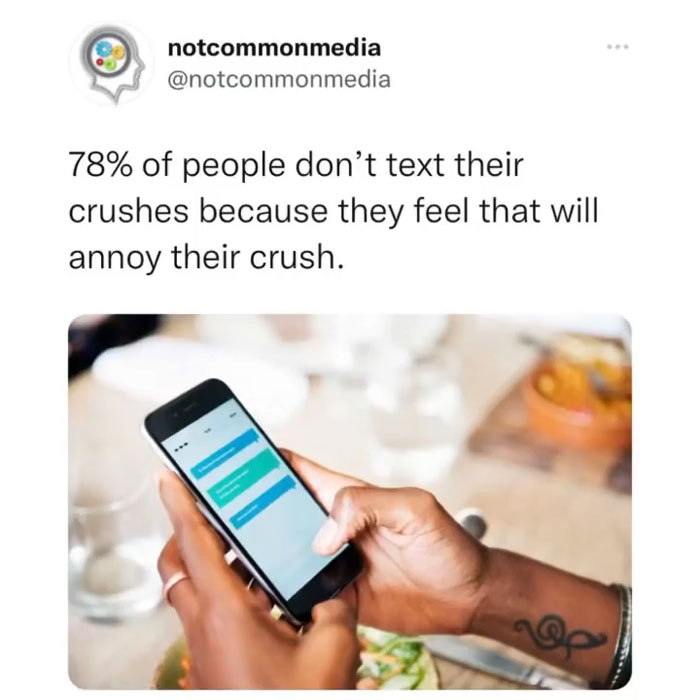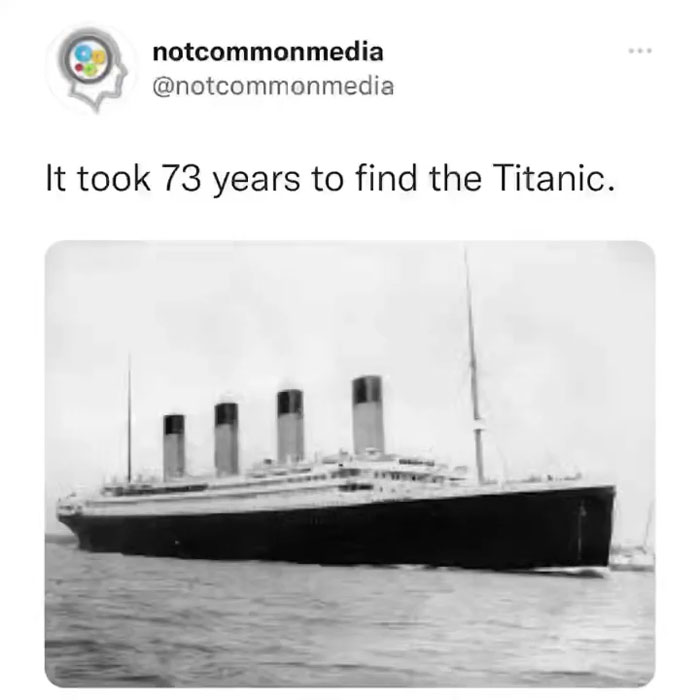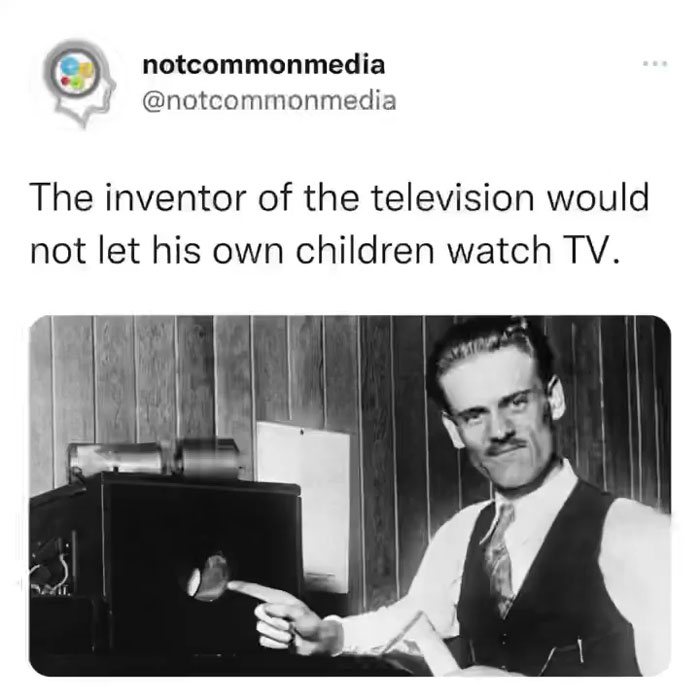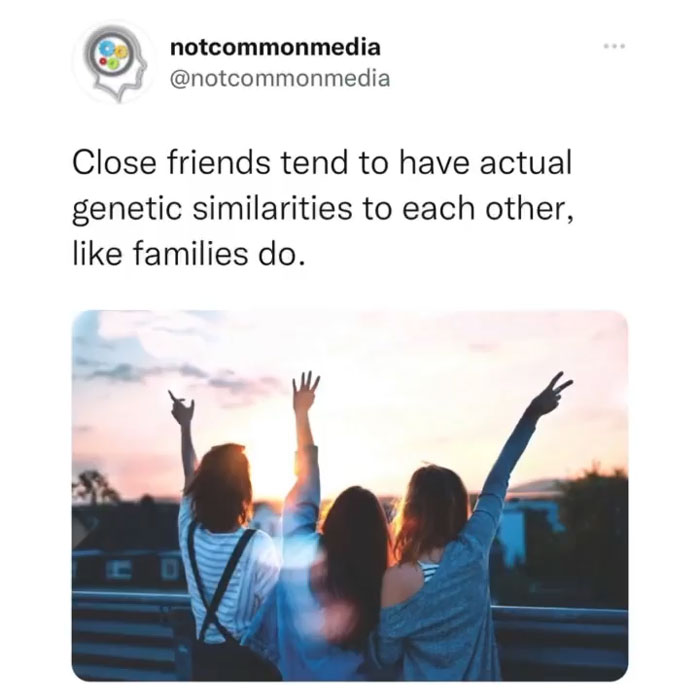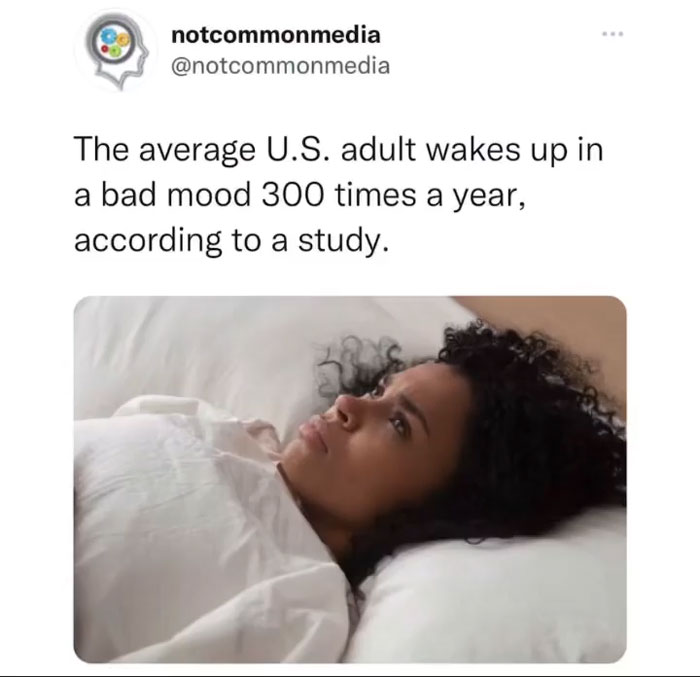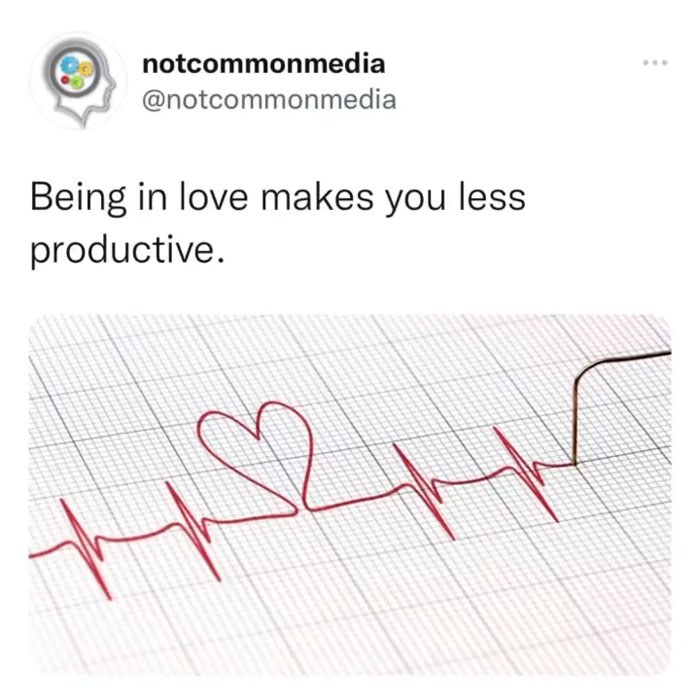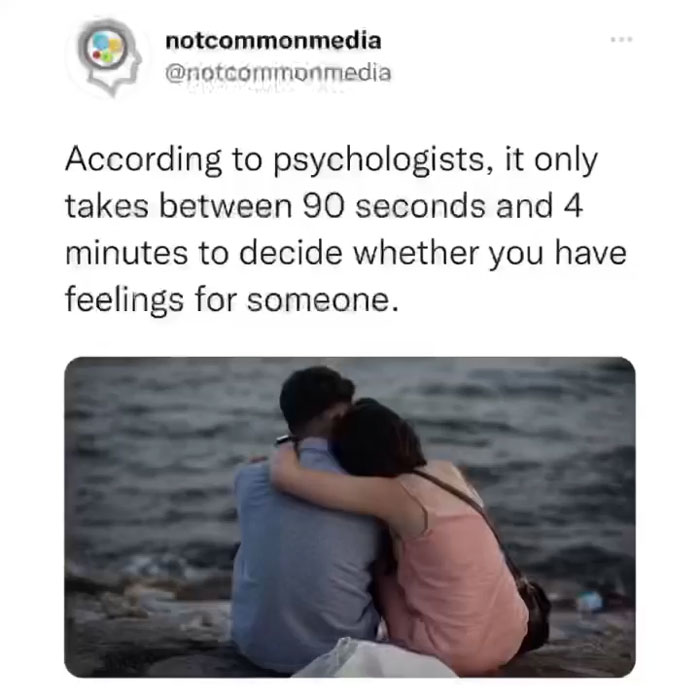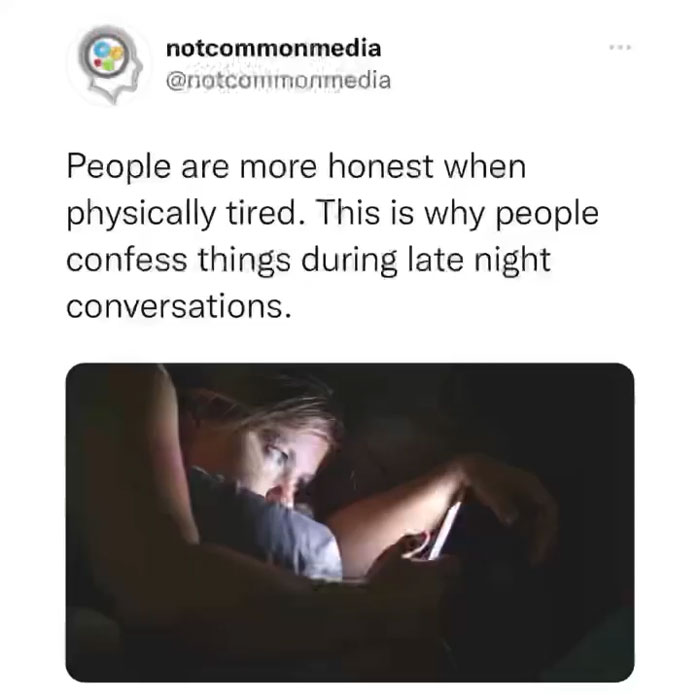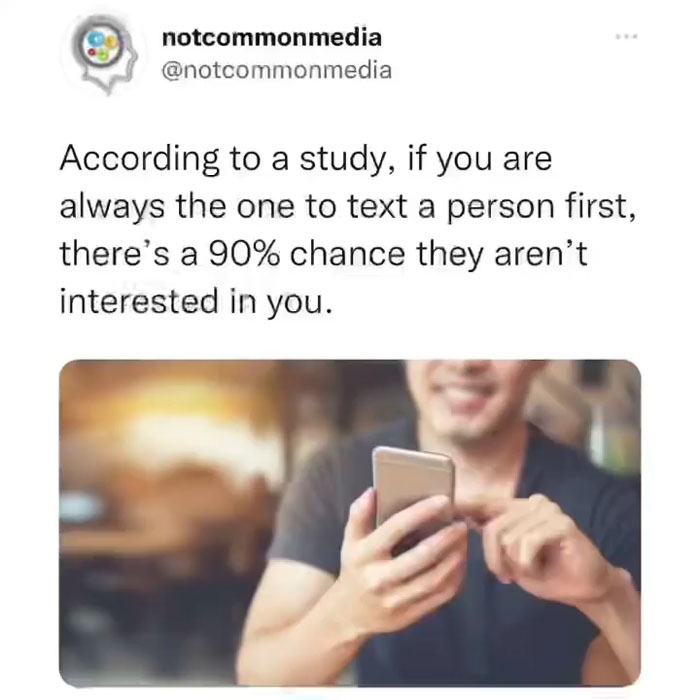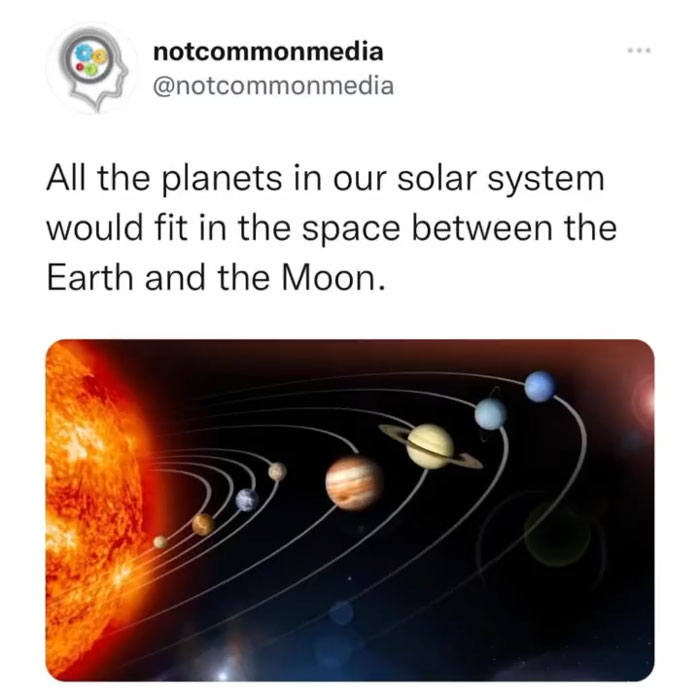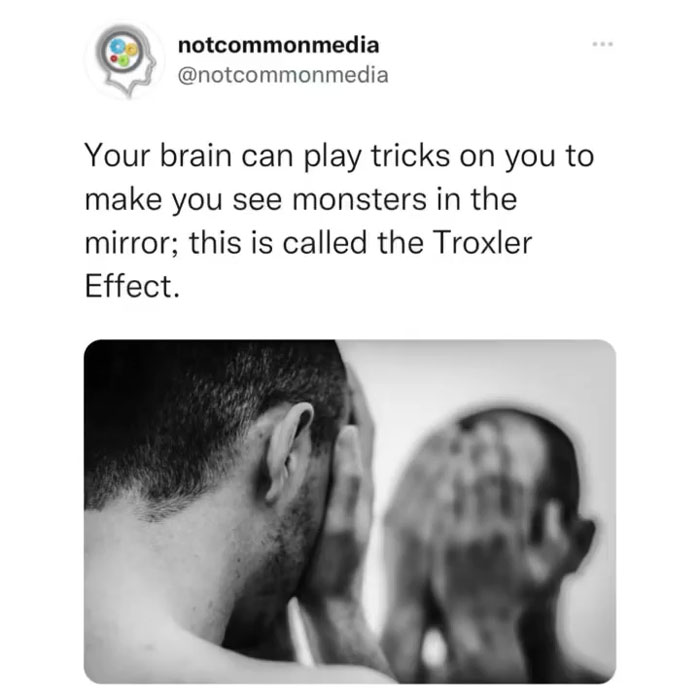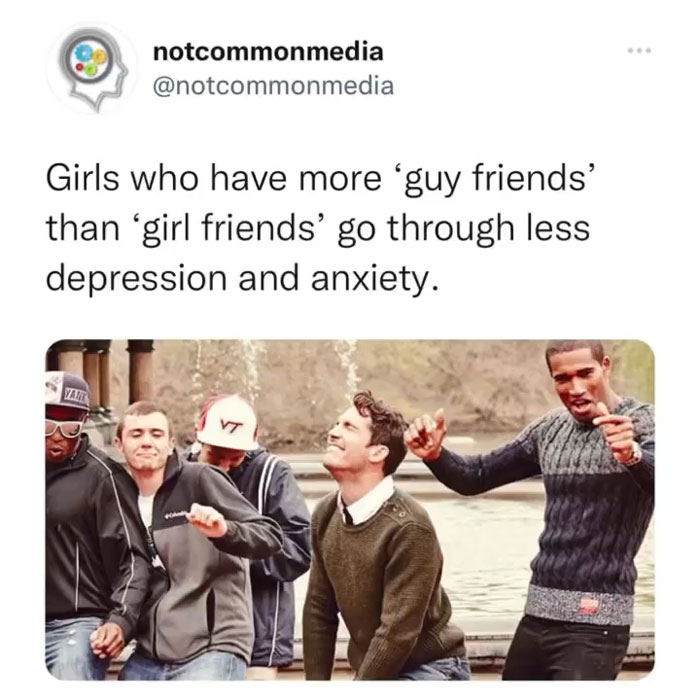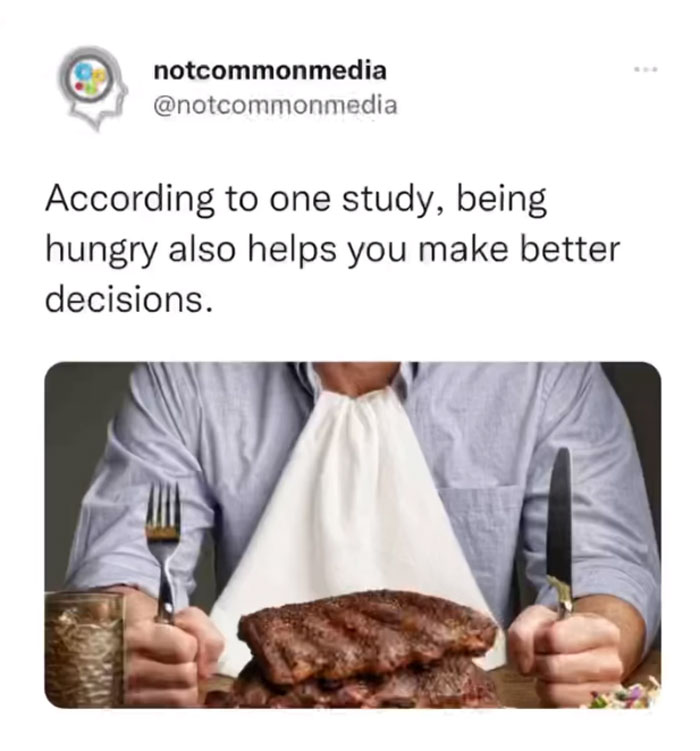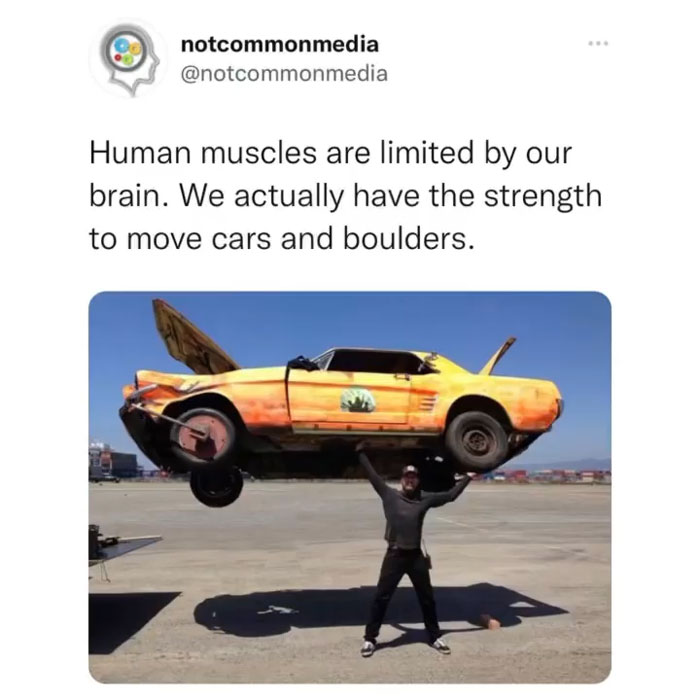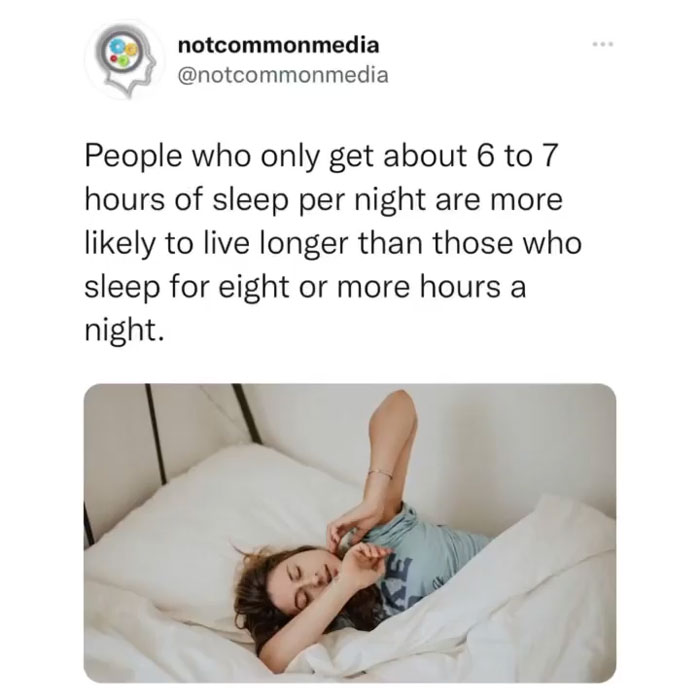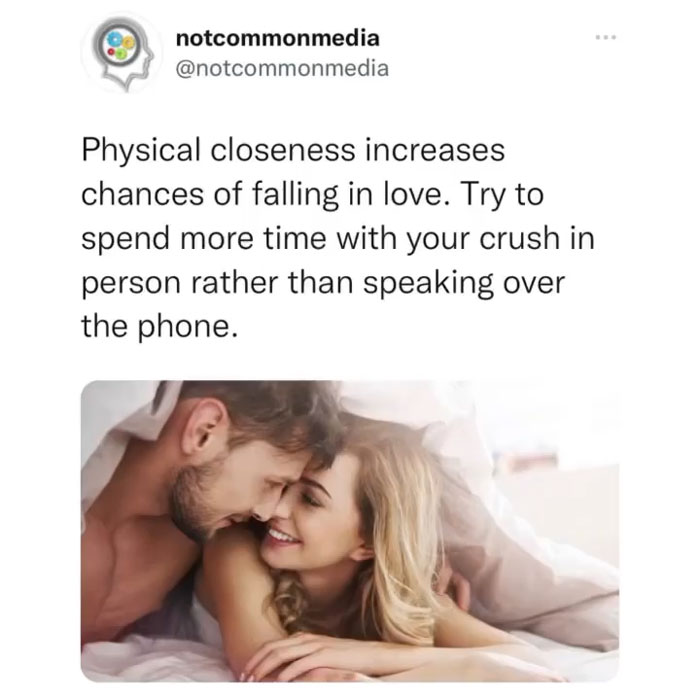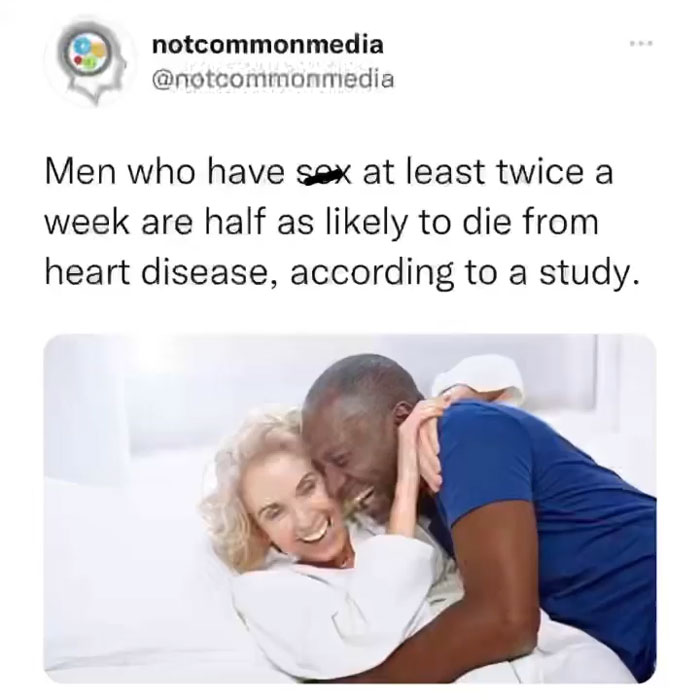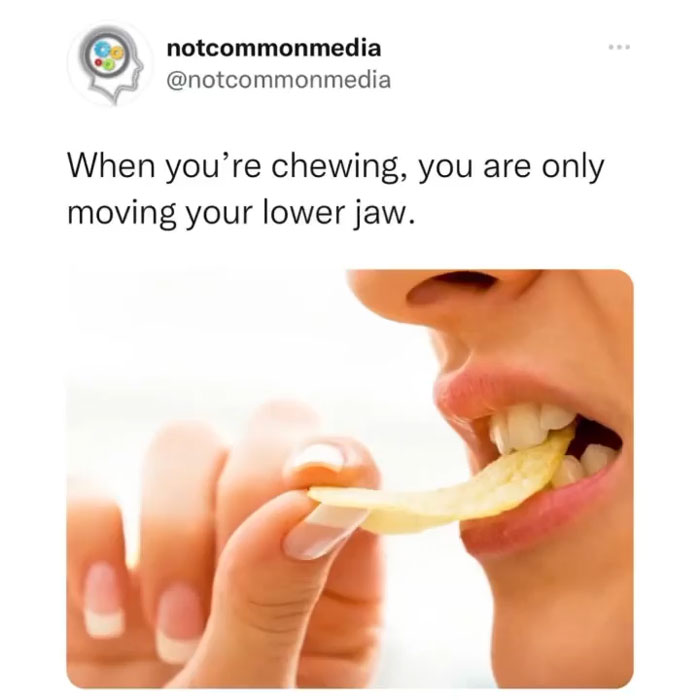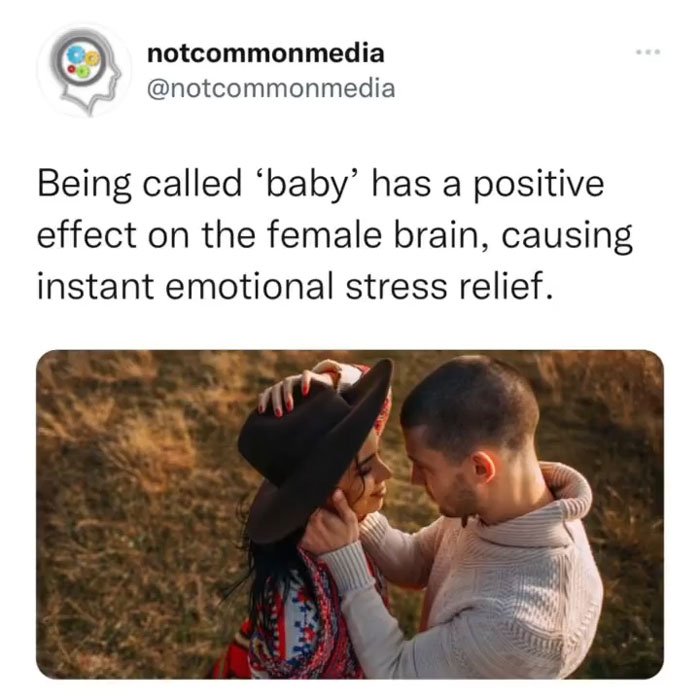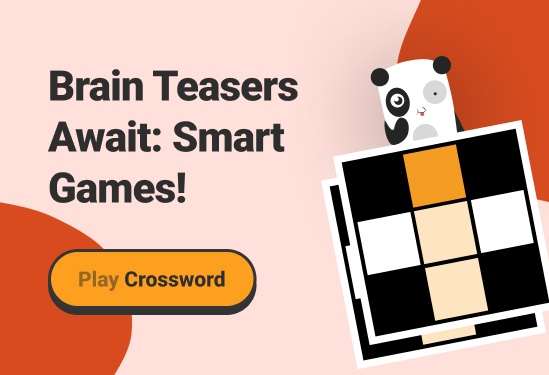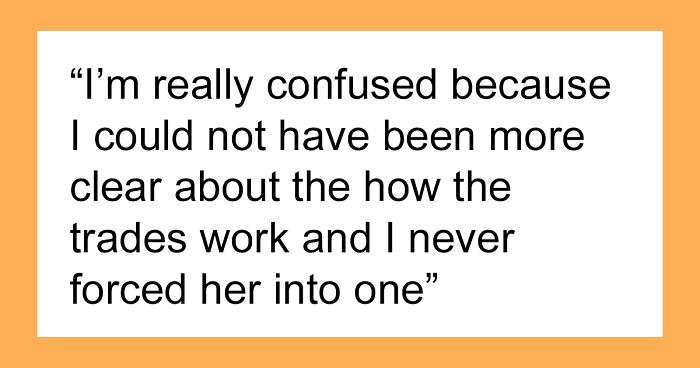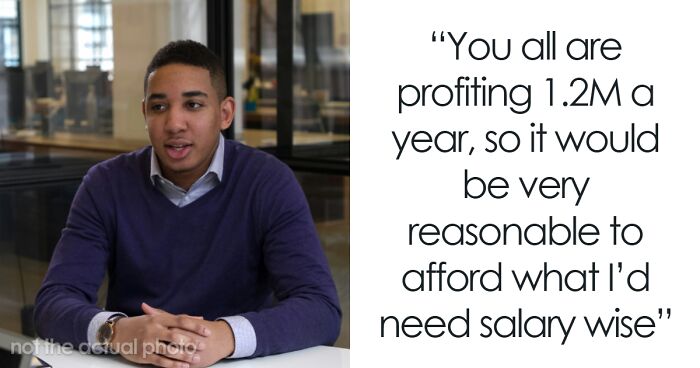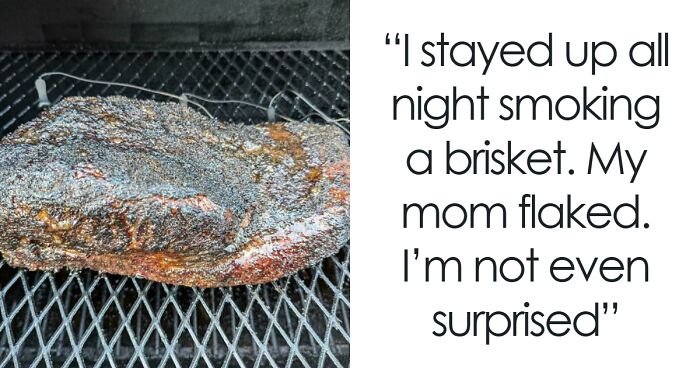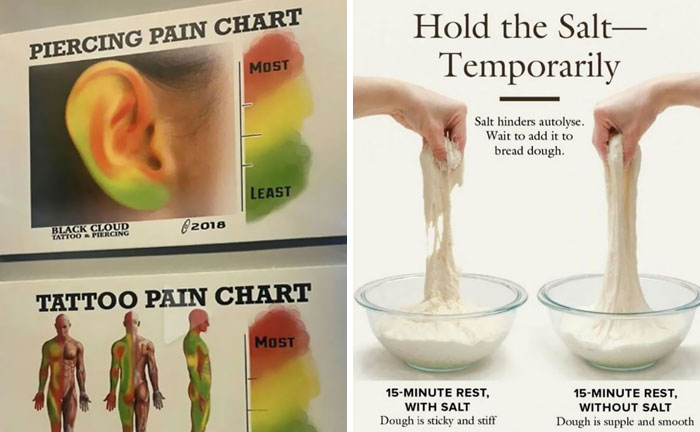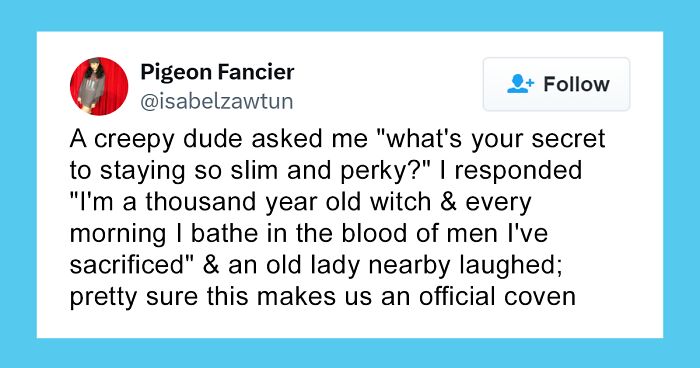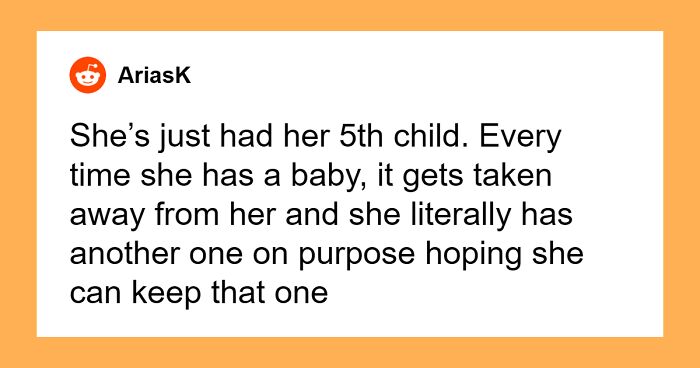
486Kviews
40 Lesser-Known Facts Shared By The “Not Common Facts” Instagram Account (New Pics)
Can you think of a better way to spice up a stalling conversation than artfully whipping out some surprising trivia? After all, random bits of knowledge catch you off guard and entertain you in the best possible way, so they are bound to leave you talking far into the night. Thankfully, heaps of golden nuggets floating online are just waiting to be uncovered, and the 'Not Common Facts' Instagram account is truly an excellent place to start.
Self-described as "The OG Fact page on Insta," it is dedicated purely to sharing lesser-known pieces of information about how intriguing our world really is. The project's creators can’t get enough of the compelling trivia they share on their social media feeds, and with a whopping 7.1 million curious readers, they’re clearly not alone.
Below, we’ve gathered the newest batch of the most unusual, weird, and riveting facts to get those brain cells buzzing. So continue scrolling and upvote your favorite ones! And if you’re interested in even more trivia goodness, check out Part 1 of this feature right over here.
This post may include affiliate links.
This is pocket change for him. He earns $2.25 MILLION. A WEEK. 😮😮😮
Again ? It's been said so many times even on bp : the queen was in her event and happened to see there was a marriage at the same location. Wasn't invited to the marriage. Edit : I mean wedding.
I seriously doubt that the queen of England has ever said "Bazinga!"
Load More Replies...It used to be fairly common to invite the queen or the president to your wedding, if for no other reason than to be able to frame the official decline/congratulations.
Frances and John Canning meeting the Queen at Manchester town hall.
Our time is precious, isn’t it? We don’t want to waste it by spending hours scrolling through the endless source of information that is the internet, aiming to find interesting pieces of trivia to have on hand at our next dinner party. What we do want is to spend this free time wisely, so carefully curated accounts like the 'Not Common Facts' are the perfect outlets to help our mission. This page on Instagram is like a breath of fresh air where people can find concise and easily digestible information that is also fun to read through.
But as much as it is delightful to discover lesser-known historical and scientific details about our world, acquiring new knowledge is much more than just pure entertainment. According to an article by Harvard Health Publishing, learning and mastering new activities trains our brains and gets our minds going. The researchers explained that our mental muscles can grow and learn as we get older, but they can only do that if we give them something to work with, like picking up a new hobby or performing a challenging activity.
He had Tritanopia, which made him unable to tell the difference between blue and green, purple and red, and yellow and pink.
"Eventually, your cognitive skills will wane and thinking and memory will be more challenging, so you need to build up your reserve," Dr. John N. Morris, director of social and health policy research at the Institute for Aging Research, said. "Embracing a new activity that also forces you to think and learn and requires ongoing practice can be one of the best ways to keep the brain healthy."
The good news is that we can pick out any new activity we can think of, as long as it follows three important guidelines that would maximize brain training. The first one, Dr. Morris stated, is that it must be challenging. Although if you can’t think of something new that would pique your interest, you can spend time improving your existing skills. "You don't have the challenge of learning something new, but rather the challenge of increasing your skill set and knowledge," he added.
Because women are conditioned to be polite which men mistake as interest. When men are interested women think they’re just being polite. Can we all just start being honest and clear about how we feel about other people?
Another thing to keep in mind is the complexity of the activity. Not only does it make us more excited to delve deeper into the subject, but it also accelerates problem-solving and critical thinking. And lastly, you need to practice it to make it permanent, just as with everything else in life. "You can't improve memory if you don't work at it. The more time you devote to engaging your brain, the more it benefits," Dr. Morris said. "It is the constant repetition of working to improve, and not the quest for mastery, that can have the greatest impact."
I even hear the voices of the characters in books while I'm reading. I really love to read.
I lost both of my best friends I’ve had in the past 3 years . I miss them so much sometimes
We previously had a chat with Barbara Oakley, Ph.D., a professor of engineering at Oakland University in Rochester and author of Learn Like a Pro: Science-Based Tools to Become Better at Anything, who agreed with Morris’ line of thinking.
"New knowledge serves as a sort of mental trellis that allows new neurons to survive, thrive, and grow," she told Bored Panda. When we’re not engaged in learning, these "new neurons, instead of nestling into your neural lattice, will wither and die. And you can find yourself becoming less flexible in your thinking as you increasingly rely on older neurons," the professor added.
Happens to me often. That's so very irritating ,and exhausting. It usually happens, if I'm stressed, or sick.
When you wish to become better at educating yourself, setting a goal is of the utmost importance. After all, when you have your eyes on the prize, it encourages you to keep going and helps a lot with the whole process. "You might set a goal of reading 20 pages a day of a book, which can amount to 15 books or more each year," Oakley suggested. "And there are wonderful online courses on learning!"
The professor herself teaches courses online like Learning How to Learn: Powerful mental tools to help you master tough subjects. According to her, online learning is great since we can access these lessons from any corner of the world, and they can add a lot to our educational journey. "You’ll see that many of these online courses are divided into 'chunks' of material that you can reasonably cover each week," Oakley told us. "And you’ll get weekly reminder emails to help keep you on track."
Oakley pointed out that virtually any kind of new learning helps keep our brains fresh, as long as it is challenging and complicated enough to increase our intelligence. "Whether it’s a new language, bringing back your rusty math skills, improving your ability to code, or taking up a new sport," the professor provided a few examples. And if you’re not sure where to start, picking up a book and reading a certain number of pages is a great way to feed your curiosity.
"If you want to make your new learning 'stick' even better — and reduce mental fog — add some exercise to your life," Oakley continued. "Exercise helps produce a chemical, BDNF, that serves as a sort of fertilizer for newer and stronger neural connections in the brain. In other words, BDNF helps you focus and remember better!"
When asked whether the internet is a good tool for learning new facts and building up our knowledge, she told us that it gives us incredible opportunities to learn from some of the best teachers in the world. "Athlete Julius Yego, for example, couldn’t find top javelin throwing coaches in his native Kenya and couldn’t afford to travel overseas to train," Oakley said. "So he started watching YouTube videos." Surprisingly, by watching tutorials online and practicing on his own, "he became the world champion in the javelin!"
Also, if you want to become better at remembering the things you recently learned, the professor explained that the best way "is to use what psychologists call 'retrieval practice.'" She noted that this simply means retrieving information from your brain. "That is, checking to see if you’ve got that information stored inside you."
For example, try using flashcards or take a few practice tests. "Or simply look away from a page or webpage (like this one!) and see if you can retrieve (that is, remember) the key ideas. Like Julius Yego, through learning, retrieving, and practicing, you too can become a world champion — or at least the best person you can be," Oakley concluded.
BP censoring is like locking your door with only a thin string.
Came here to say this lol. A lot of them sound either cherry-picked, completely out of context, or completely fabricated.
Load More Replies...Take these with a fine grain of salt. Be amused but ffs don't treat these like some would the bible.
BP censoring is like locking your door with only a thin string.
Came here to say this lol. A lot of them sound either cherry-picked, completely out of context, or completely fabricated.
Load More Replies...Take these with a fine grain of salt. Be amused but ffs don't treat these like some would the bible.

 Dark Mode
Dark Mode 

 No fees, cancel anytime
No fees, cancel anytime 





